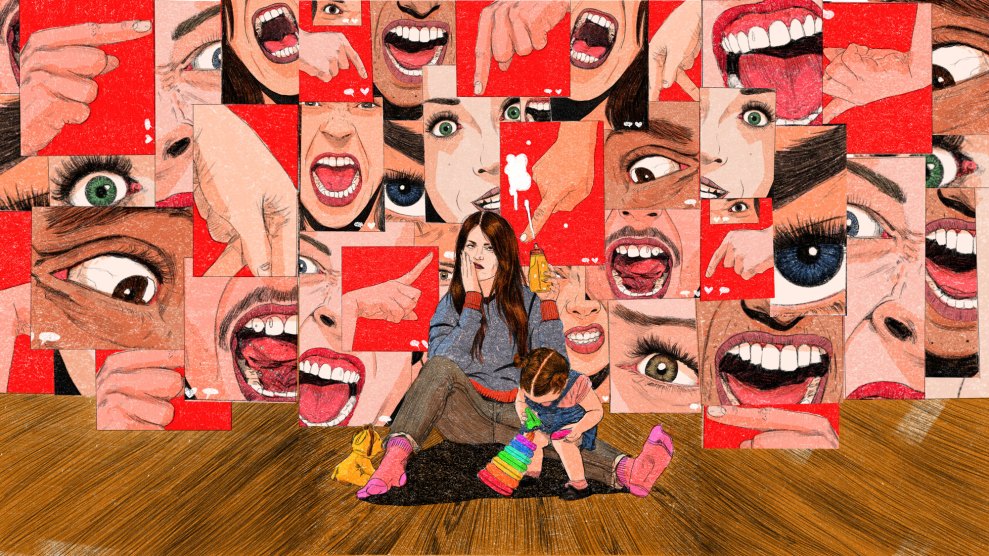
When I caught up with Steve Buscemi, he was slouching on a sofa in a downtown San Francisco hotel. He’d just done a string of back-to-back interviews and had a slight cold, so he was, understandably, somewhat reserved. Dressed in black, with a goatee and hair grown well past his ears, he only managed a smile or two—one came when San Francisco local Robin Williams barged in, congratulating him on directing a musical that was actually directed by another indie actor with an Italian last name. That got him laughing.
Perhaps Buscemi’s reticence was fitting, since he was in town promoting his new film about a celebrity interview gone awry, The Interview, which he directed and co-stars in with Sienna Miller. The film is the first in a series called Triple Theo, an effort to remake three Dutch-language films by Theo van Gogh, the Dutch director and great-grandson of Vincent van Gogh’s brother Theo, who was murdered in 2004. Stanley Tucci is set direct the remake of Blind Date; John Turturro’s adaptation of 06 is filming this summer.
The Interview opened in New York and Los Angeles earlier this summer, opens July 20 in the Bay Area, and is scheduled to screen in smaller markets later this summer.
Mother Jones: The Interview is primarily made up of dialog between you and Sienna Miller and takes place almost entirely in an apartment, so it kind of feels like a play. Did you want to produce that kind of effect?
Steve Buscemi: No. Actually, I didn’t want it to come out that way at all. I intended it to be very cinematic. The original had a real visual element to it as well.
MJ: The film is very visual, but the feeling of watching the story unfold felt similar to theater.
SB: We rehearsed it like a play for about two weeks, and we shot in sequence, so it did have the spirit of a play.
MJ: The premise of the film is that a jaded political reporter is assigned to do a “fluff piece” on a famous actress. Were you interested in dissecting the common interview scenario?
SB: I was less interested in making a commentary on the media and more interested in exploring a relationship. It’s like watching a couple go through a breakup, except they hardly know each other. People who have been together for five years couldn’t say the kinds of things these characters say to each other in one night. This is much more than just an interview.
MJ: Were there any difficulties in making the film; any major obstacles?
SB: Well, we lost the money we thought we had in the beginning. But that happens on almost every film, even with studio films. This one was small. We filmed in nine days, and we had help from the Dutch crew who worked on the original film.
MJ: Your character in the film is sort of a complicated slime ball, which is arguably a character type you’ve done before. Why are you drawn to characters like that?
SB: To me, [he] is a complicated guy, and I’m drawn to that. That someone can be cynical and tender, and funny. I’m drawn to all those people. It’s not often that I get to display all that in one film. I don’t think about the characters I choose to play analytically or consciously. I read the script and decide if a particular character looks fun to play. I look for complexity and a sense of humor. Those are crucial, real things to life.
MJ: You’ve been acting for about two decades and directing for about 10 years now. What stage or level of creativity do you think you are at right now in your career?
SB: Nothing’s really changed for me over the years. I like telling stories about people with problems. I can’t really put it much simpler than that. Relationships are interesting to me. Not just between men and women but fathers and sons, brothers and sisters and friends.
MJ: The New York Times recently referred to you as an “indie god among video store clerks.” How do comments like that make you feel?
SB: I don’t feel strongly about comments like that one way or the other. I don’t hang out in video stores, so I have no idea.
MJ: You’re turning 50 this year. Do you stress about getting older or do you embrace it?
SB: I guess I don’t think about age too much. I’ve always felt older than I really am anyway. I’m not dreading getting older. I don’t miss the anxiety of being younger and not knowing what you want or where you’re going.
MJ: What have you been getting into lately, outside of acting and directing?
SB: My son’s band. They’re called Fiasco. It’s been fun listening to them rehearse and going to their gigs. It’s exciting to watch them; to watch how they do it, their excitement about what they’re doing. They have to really fight to get gigs; I mean they’re only in high school.
MJ: Do you like the music?
SB: Yeah, I do. It’s rock, sort of influenced by late-70s punk. [My son] isn’t influenced by the fashion of it. He’s really into the music. I think it’s great. He’s lucky to have something to put all his energy into like that. They just did a recording called “God Loves Fiasco.” They recorded it in my basement.
MJ: Speaking of DIY, what do you think about new work coming out of the independent film scene?
SB: There’s been such an explosion of films since the advent of video. So many more films than there used to be. But there’s not many venues to get them out there. A lot that actually get distributed are often not really that risky. I was just in Seattle for a film festival and I met a lot of filmmakers who were very interesting, and I talked with people in the audience who had a lot of enthusiasm. But independent film kind of became a genre in itself, which it shouldn’t be.
MJ: So many independent film companies are owned by major film studios, which seems to defeat the purpose.
SB: All that means is that those films get less money to be made. But they still want box-office actors to star in them.
MJ: Has being a successful independent film actor and director helped you get your own projects up and running?
SB: You know, it really doesn’t help that much. They say they love me, but when they actually read the scripts, it doesn’t always happen.












